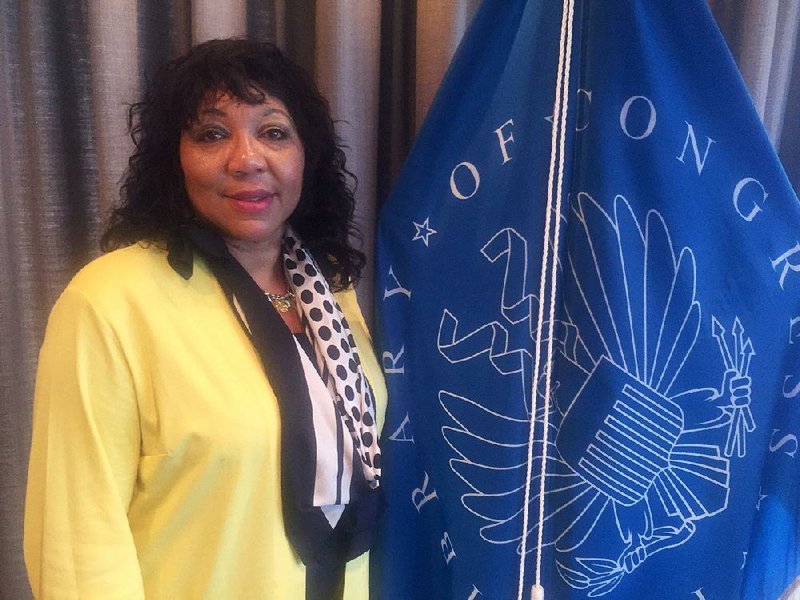WASHINGTON -- Arkansas educators don't have to travel to the Library of Congress to gain access to its wealth of resources. Thanks to the Internet, the library's shelves are now accessible for classrooms across the state.
The sights and sounds that are archived on Capitol Hill can be tapped by teachers across the Natural State, officials say. Each year, the nation's library holds a Summer Teacher Institute, which draws participants from across the country.
This year, Malvern Middle School teacher Claudine James and other educators spent a week in Washington learning about the library's treasures.
The teachers who participate are impressive, said Michael Apfeldorf, educational resources specialist at the library.
"These are very highly motivated individuals looking to improve their craft to help kids," he said. "And the specific focus of this institute is to help them learn how to use Library of Congress primary sources in their classrooms."
There's no shortage of materials, he noted.
"The Library of Congress has millions of primary sources in all shapes and sizes. Newspapers, photographs, manuscripts, maps, audio and visual, and these are the raw materials of history."
Participants must pay for their own travel and lodging, Apfeldorf said. But the training is free.
Roughly half of all applicants are accepted.
The nation's largest library sits across the street from the U.S. Capitol and features some of the world's most valuable texts, including a Gutenberg Bible dating to the mid-15th century.
Printed in Latin, it is "the first great book printed in Western Europe from movable type," the library's website states.
The library also houses the papers of great Americans, such as President Abraham Lincoln to civil-rights pioneer Rosa Parks.
Founded in 1800, the library started small, gradually expanding to about 3,000 volumes by 1814. Those initial holdings were torched by British troops during the War of 1812.
In 1815, Congress started anew, purchasing former President Thomas Jefferson's personal collection -- 6,487 books -- for $23,940.
Since then, the collection has grown, approaching 168.3 million items as of Oct. 1.
At last count, there were 24.6 million cataloged books, 14.9 million photographs, 8.25 million pieces of sheet music, 5.6 million maps, 4 million audio recordings and more than 109,000 posters.
Large amounts of material are now available online at loc.gov, officials noted.
In the digital collection, there are Arkansas folk songs, Civil War-era Arkansas maps, black-and-white photos of Arkansas flood refugees from 1937; and transcripts of interviews with former Arkansas slaves.
"The goal is to make the library very accessible and very relevant to every American," Apfeldorf said.
James, an English and language arts teacher, said the training was extremely helpful.
"I have been blown away just by the magnitude of resources available through the Library of Congress," she said.
Many of her students will never visit Washington, she said. But they'll benefit from the materials she gleaned on Capitol Hill, she added.
"Being here, taking this back to the classroom, is going to enable me to teach more impactful lessons so that I can empower my students," she said.
A National Board-certified teacher, James was Hot Spring County Educator of the Year in 2016 and Malvern School District Teacher of the Year in 2017. She was also one of 51 educators nationwide to receive the national Sanford Teacher Award for 2018.
In addition to participating in the Library of Congress program, James was also a National Endowment for the Humanities Scholar this summer, traveling to Atlanta to learn about the civil-rights movement.
She wrapped up her summer with a week in the Detroit area, where she received The Henry Ford's Innovation Nation's Teacher Innovator Award.
Now, she'll be sharing what she's learned with her students; the first day of class in Malvern is Aug. 19.
James wants the young people she teaches to be "change-makers," she said.
Educators "have a huge platform," she said. "And if we use it correctly, it can be a catalyst for change for so many students."
NW News on 08/12/2019

